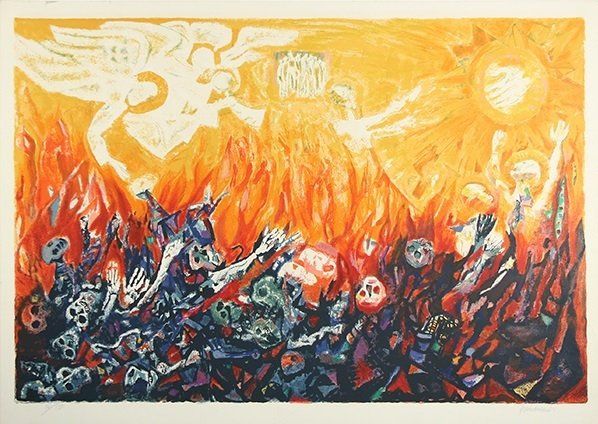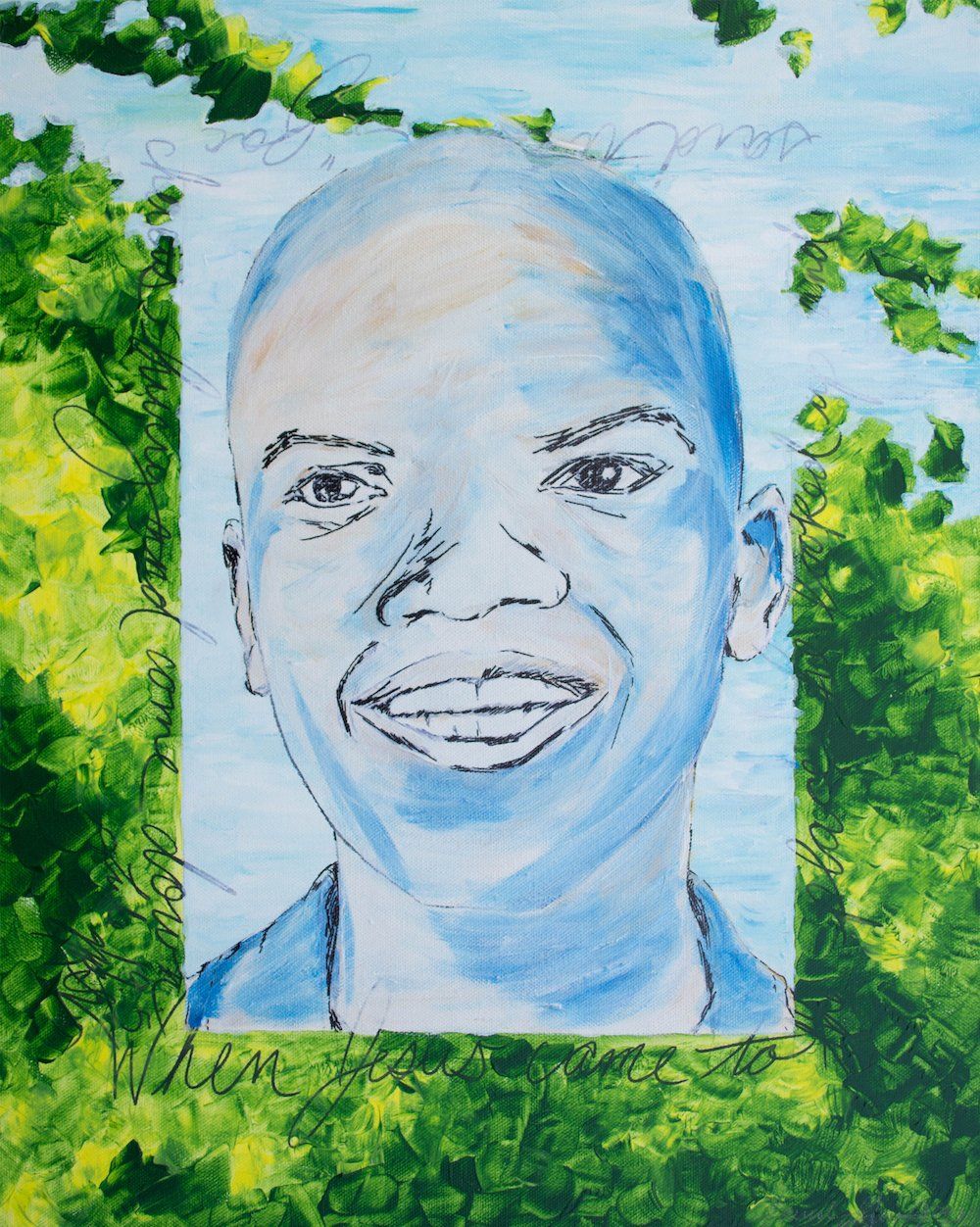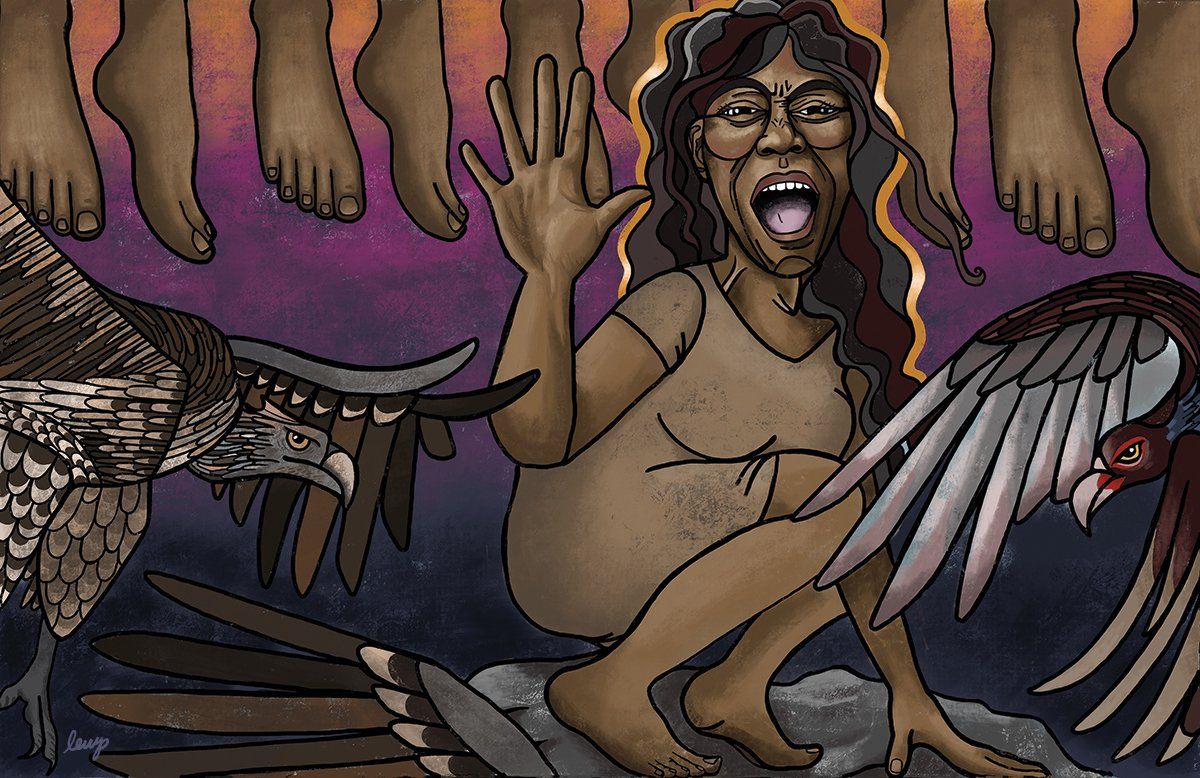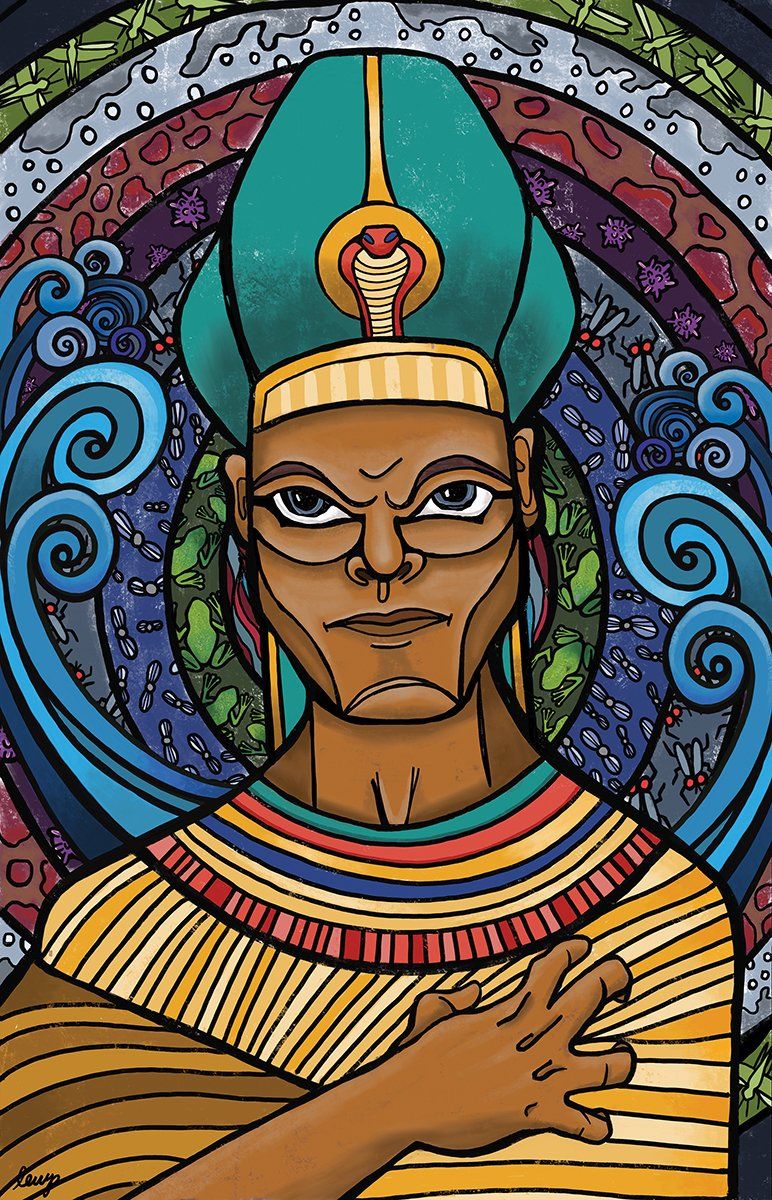"Embracing the Gospel" Sermon from April 15
Because many couldn't safely make it to worship on April 15, I'm posting part of my planned message here. It is part two of a five part sermon that looks at the first letter of John in relation to our church mission statement: Erindale United Church is a people of God. We embrace, proclaim and practice the Gospel of Jesus Christ. We seek justice for all people, striving to become a loving, nurturing, and ministering community. Our texts for this day were: Luke 24:36-48 and 1 John 3:1-7. Embracing the Gospel As we move into this second week of a First John sermon series, I invite you to take a moment and reflect on this question: throughout your life, how have you known that you were loved? Whether it was the love of a parent, the love of a child, the love of your partner or spouse, the love of a friend, or even the love of a stranger - how have you really known you were loved, experienced and internalized that love? And, to complicate things, how would you explain that feeling to others? I can recall a moment when (my now spouse) Jordan and I were preparing to join our finances and create one household together. We sat down at the computer screen and pulled up some financial documents so I could show him my debt from graduate school. Now, compared to many people coming out of the US higher education system, my debt was small and manageable, but still, in a relationship, our finances can be an incredibly vulnerable area. So I braced myself a bit - as I revealed my debt to a person who had no debt and hadn’t chosen this particular debt and I explained, “Okay here is where a piece of our income will go every month,” - I braced myself waiting for some judgment and questioning. But instead, Jordan took all the information in, thought about it in his reflective, calm way, and said, “Well, I guess your debt is my debt now,” and these were some of the most romantic words I’ve ever heard. While we don’t think of finances as being particularly romantic, I knew how deeply I was loved in that moment, a moment when I could share something that was a bit shameful for me, and receive grace and understanding instead of judgment - a moment to really take in the fact that I didn’t have to face my financial challenges alone. Now, Jordan would roll his eyes to hear me say this, but it was, for me, a moment of fully experiencing God’s love in the form of my life partner, a moment of embracing and taking in what sacrificial love looks like. Still, communicating that feeling of being truly seen and known and loved for your whole self - it’s hard work. It’s one of the most challenging things I find in ministry is to explain in words an internal feeling that goes so far beyond words. And if it is hard to explain what it feels like to be loved by other people, it feels still more difficult to explain what it feels like to be loved by God. Yet, the resurrection, the Easter story, means just that: God loves us. If we had to boil it down to one sentence, the resurrection is a sign for us that, in spite of everything, in spite of the flaws of humanity, in spite of those things that are most shameful to us, those parts of ourselves we wish to keep hidden, God loves us. As John writes, see what love God has for us that we should be called children of God. But this message has always been hard to take in and to embrace. Our two readings point to how challenging it can be to hold onto those feelings of love, and really have God’s love be a part of our identity. In Luke’s gospel, the disciples are still trying to figure out all that has taken place, and as we talked about on Easter Sunday, fear and doubt are still part of the story. This section follows the Emmaus Road text where the risen Christ walks and talks for a time with two disciples outside the city of Jerusalem. They don’t recognize him until he breaks bread in front of them. After he disappears, they return to Jerusalem to tell the others, and in the middle of that conversation, risen Jesus pops in again, and they share this meal of fish together. It seems that, like me, the risen Christ is drawn to good food and good company. But Jesus can tell they are kind of freaked out by everything that is happening. “Why are you frightened and why do doubts arise in your hearts?” he asks them. Can’t they see that he is right there before them? God’s love, God’s power over death is standing right before them, and yet they are having a hard time embracing it. Decades later, John is trying to offer Christ’s peace to his people who still don’t fully understand what the resurrection means or looks like. He invites them to trust in the mystery saying that we don’t know what we will become, we don’t know exactly where this all is leading. We have seen glimpses of God’s love, like the disciples who see him before he moves on again, but we can’t see or understand the full picture of God’s love for us. We get these moments, but not the whole thing. Still, John says, we know something of God’s love, we see it, take it in and embrace it, whenever we we can act like Christ, whenever we can be righteous as Christ is righteous. We remember, here, John’s call to fellowship at the opening of the letter we read last week. We have unity with God and Christ, and our lives are to proclaim the love of the resurrected Christ in such a way that others are invited in. The theologian Miroslav Volf writes in Exclusion and Embrace, “Because the Christian God is not a lonely God, but rather a communion of three persons, faith leads human beings into the divine communion. One cannot, however, have a self-enclosed communion with the Triune God- a ‘foursome,’ as it were-- for the Christian God is not a private deity. Communion with this God is at once also communion with those others who have entrusted themselves in faith to the same God. Hence one and the same act of faith places a person into a new relationship both with God and with all others who stand in communion with God.” In other words, while the idea of embracing the Gospel, as our mission statement suggests we strive to do, seems solitary and personal, it actually should lead us to sharing and reflecting that love back out into our relationships, and should give others a glimpse of what the resurrected Christ’s love and peace look like. In times when we are closed off to others and not willing to share that generosity and love, I would suggest it’s because we haven’t actually fully embraced God’s love for us, we haven’t taken that in and allowed ourselves to be transformed if we’re not willing to let others into that unity with God. So in this Easter season, as we seek communion with Christ and with one another, we can acknowledge that fully understanding the scope of God’s love and what God is up to in the world is challenging, if not, impossible and sometimes startling. However, we can start with the people right in front of us. We can embrace the love offered to us by friends and family and partners and see it as a way of God embracing us. Strengthened by God’s loving embrace, we can’t help but share it with others. Let it be so. Amen.
Because many couldn't safely make it to worship on April 15, I'm posting part of my planned message here. It is part two of a five part sermon that looks at the first letter of John in relation to our church mission statement:
Erindale United Church is a people of God. We embrace, proclaim and practice the Gospel of Jesus Christ.
We seek justice for all people, striving to become a loving, nurturing, and ministering community.
Our texts for this day were: Luke 24:36-48 and 1 John 3:1-7.
Embracing the Gospel
As we move into this second week of a First John sermon series, I invite you to take a moment and reflect on this question: throughout your life, how have you known that you were loved? Whether it was the love of a parent, the love of a child, the love of your partner or spouse, the love of a friend, or even the love of a stranger - how have you really known you were loved, experienced and internalized that love? And, to complicate things, how would you explain that feeling to others?
I can recall a moment when (my now spouse) Jordan and I were preparing to join our finances and create one household together. We sat down at the computer screen and pulled up some financial documents so I could show him my debt from graduate school. Now, compared to many people coming out of the US higher education system, my debt was small and manageable, but still, in a relationship, our finances can be an incredibly vulnerable area. So I braced myself a bit - as I revealed my debt to a person who had no debt and hadn’t chosen this particular debt and I explained, “Okay here is where a piece of our income will go every month,” - I braced myself waiting for some judgment and questioning. But instead, Jordan took all the information in, thought about it in his reflective, calm way, and said, “Well, I guess your debt is my debt now,” and these were some of the most romantic words I’ve ever heard.
While we don’t think of finances as being particularly romantic, I knew how deeply I was loved in that moment, a moment when I could share something that was a bit shameful for me, and receive grace and understanding instead of judgment - a moment to really take in the fact that I didn’t have to face my financial challenges alone. Now, Jordan would roll his eyes to hear me say this, but it was, for me, a moment of fully experiencing God’s love in the form of my life partner, a moment of embracing and taking in what sacrificial love looks like.
Still, communicating that feeling of being truly seen and known and loved for your whole self - it’s hard work. It’s one of the most challenging things I find in ministry is to explain in words an internal feeling that goes so far beyond words. And if it is hard to explain what it feels like to be loved by other people, it feels still more difficult to explain what it feels like to be loved by God. Yet, the resurrection, the Easter story, means just that: God loves us. If we had to boil it down to one sentence, the resurrection is a sign for us that, in spite of everything, in spite of the flaws of humanity, in spite of those things that are most shameful to us, those parts of ourselves we wish to keep hidden, God loves us. As John writes, see what love God has for us that we should be called children of God.
But this message has always been hard to take in and to embrace. Our two readings point to how challenging it can be to hold onto those feelings of love, and really have God’s love be a part of our identity. In Luke’s gospel, the disciples are still trying to figure out all that has taken place, and as we talked about on Easter Sunday, fear and doubt are still part of the story. This section follows the Emmaus Road text where the risen Christ walks and talks for a time with two disciples outside the city of Jerusalem. They don’t recognize him until he breaks bread in front of them. After he disappears, they return to Jerusalem to tell the others, and in the middle of that conversation, risen Jesus pops in again, and they share this meal of fish together. It seems that, like me, the risen Christ is drawn to good food and good company.
But Jesus can tell they are kind of freaked out by everything that is happening. “Why are you frightened and why do doubts arise in your hearts?” he asks them. Can’t they see that he is right there before them? God’s love, God’s power over death is standing right before them, and yet they are having a hard time embracing it.
Decades later, John is trying to offer Christ’s peace to his people who still don’t fully understand what the resurrection means or looks like. He invites them to trust in the mystery saying that we don’t know what we will become, we don’t know exactly where this all is leading. We have seen glimpses of God’s love, like the disciples who see him before he moves on again, but we can’t see or understand the full picture of God’s love for us. We get these moments, but not the whole thing. Still, John says, we know something of God’s love, we see it, take it in and embrace it, whenever we we can act like Christ, whenever we can be righteous as Christ is righteous.
We remember, here, John’s call to fellowship at the opening of the letter we read last week. We have unity with God and Christ, and our lives are to proclaim the love of the resurrected Christ in such a way that others are invited in. The theologian Miroslav Volf writes in Exclusion and Embrace, “Because the Christian God is not a lonely God, but rather a communion of three persons, faith leads human beings into the divine communion. One cannot, however, have a self-enclosed communion with the Triune God- a ‘foursome,’ as it were-- for the Christian God is not a private deity. Communion with this God is at once also communion with those others who have entrusted themselves in faith to the same God. Hence one and the same act of faith places a person into a new relationship both with God and with all others who stand in communion with God.” In other words, while the idea of embracing the Gospel, as our mission statement suggests we strive to do, seems solitary and personal, it actually should lead us to sharing and reflecting that love back out into our relationships, and should give others a glimpse of what the resurrected Christ’s love and peace look like. In times when we are closed off to others and not willing to share that generosity and love, I would suggest it’s because we haven’t actually fully embraced God’s love for us, we haven’t taken that in and allowed ourselves to be transformed if we’re not willing to let others into that unity with God.
So in this Easter season, as we seek communion with Christ and with one another, we can acknowledge that fully understanding the scope of God’s love and what God is up to in the world is challenging, if not, impossible and sometimes startling. However, we can start with the people right in front of us. We can embrace the love offered to us by friends and family and partners and see it as a way of God embracing us. Strengthened by God’s loving embrace, we can’t help but share it with others. Let it be so. Amen.








